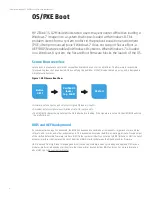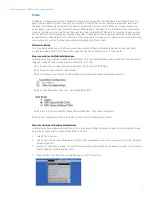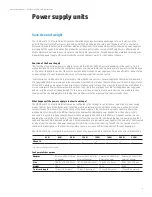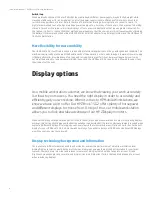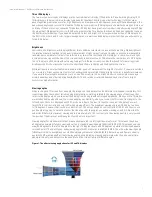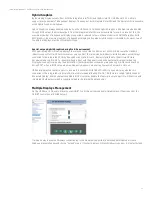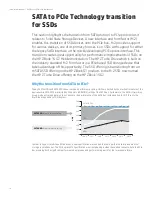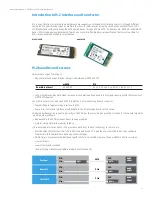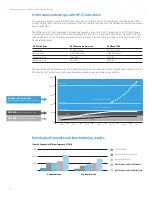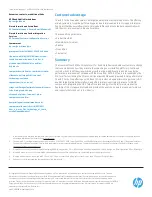
15
Technical white paper | HP ZBook 15 G2 Mobile Workstation
Introduction to M.2 interface and form factor
M.2 is a specification for internally mounted computer expansion cards and associated connectors. Through different
keying the M.2 specification supports multiple functions for add-in cards including such devices as WLAN (Wi-Fi), 3G/
LTE (WWAN), and solid-state drives (SSDs). Exposed buses through M.2 are SATA, PCI Express 3.0, SATA 3.0, and USB 3.0
buses. M.2 storage devices replace mSATA with a denser, more flexible physical specification that is most suitable for
SSDs, especially when utilized in small devices.
M.2 PCIe SSD
mSATA SSD
M.2 benefits and features
• Maximizes usage of card space
– Physical dimension specification comparison between mSATA and M.2
mSATA
M.2
Board Area (mm)
30 x 50.95
22 x 30, 22 x 42, 22 x 60, 22 x 80, 22 x 110
– Longer modules and double-sided components population allows double the storage capacity within the footprint of
mSATA SSD devices.
• Four PCI Express lanes and one SATA 3.0 6 Gb/s port accessed through same connector.
– Compatibility to legacy storage interface (SATA).
– Same form-factor and interface provides path to the PCIe storage devices of the future.
• Reduces bottlenecks by connecting directly to the PCIe bus thus providing an excellent solution for those with large files
and big data workflows.
– Bandwidth to the SSDs increases due to lane aggregation
– Simpler storage hierarchy reduces latency
• Three storage interface options – M.2 provides a path from today’s technology to tomorrow’s.
– AHCI: Enables smooth transition to PCIe SSD storage devices. Through the use of existing driver, they can easily
transition to this new interface and enjoy the advantages.
– NVMe: Future implementation designed specifically for non-volatile memory, the new NVMe controller provides:
• Lower latency
• Lower command overhead
• Exploits the parallelism available in modern host HW and SW
Past/Now
PCH
PCIe
PCIe
PCIe
SSD
PCH
SSD
PCH
SSD
Now/2015
2015/2016
NAND
ARRAY
NAND
ARRAY
NAND
ARRAY
SATA
AHCI
AHCI
NVMe
SATA
PCIe
PCIe


